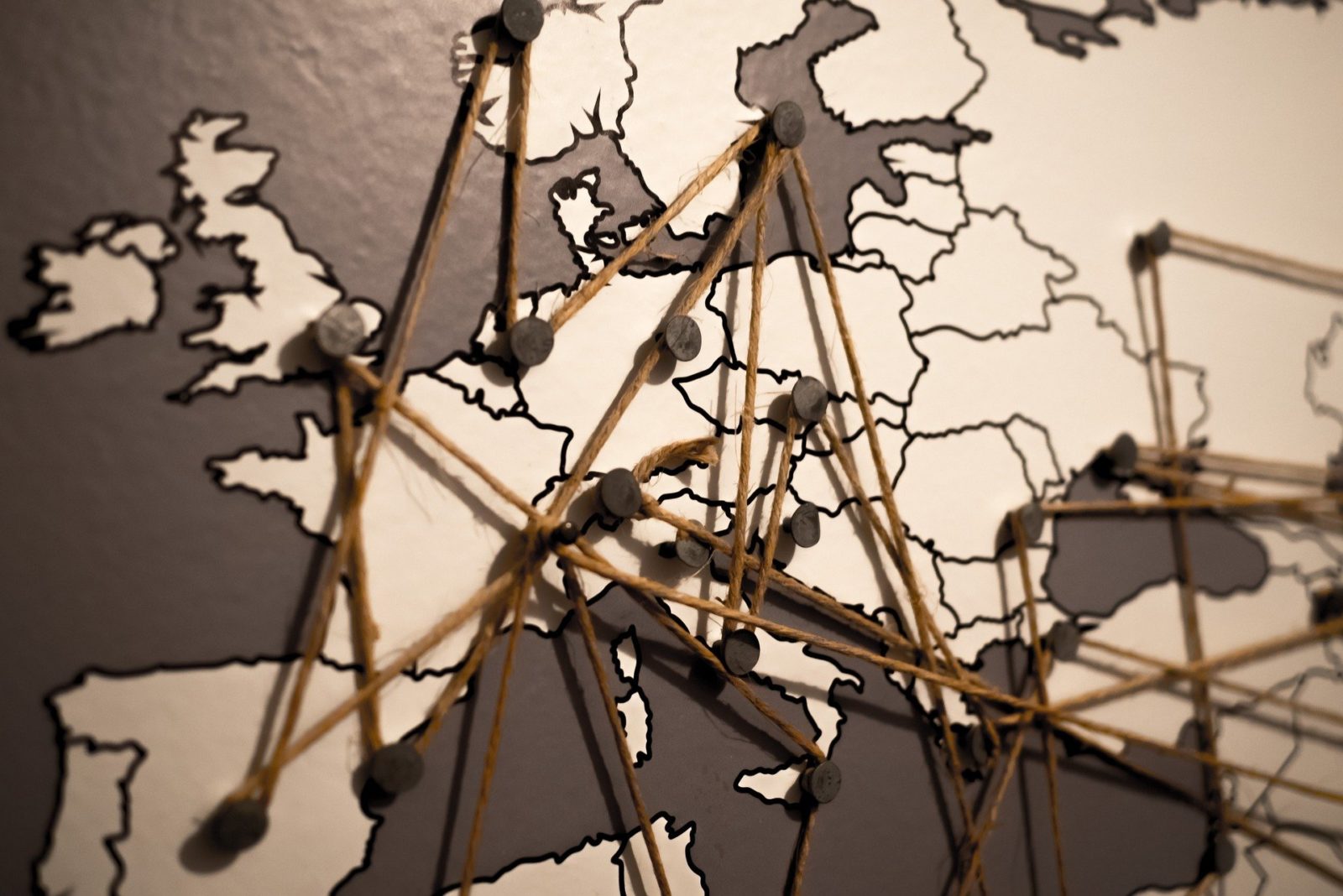When the Panama Papers investigation exploded into the media in 2016 it grabbed headlines with revelations which led to a President being jailed and and a Prime Minister resigning. Five years later investigations are continuing and new regulations are being written around the world. It lifted the veil on a part of the financial system made-up of shell companies, off-shore financial accounts and hidden assets. It showed how a globalised, tangled web of legal and corporate relationships shielded both the shy rich and criminals from public gaze and investigative scrutiny.
Sometimes, as journalists revealed, the wealthy and the criminal turned were one and the same.
But sometimes they are not, which is the problem. Secrecy clashes with transparency. And without sufficient transparency it is impossible to distinguish legitimate wealth from criminal cash. A global system first established in the 1980s to fight money laundering, led by the Financial Action Task Force, has developed over time to gather financial intelligence, shine a spotlight into the darkest corners of the financial system and prevent its misuse by malign actors. However, it became clear that this system of data collection was barely scratching the surface, and did not address how corporate law, jurisdictional differences and accounting practices complicated and shielded criminal assets.
While financial intelligence units had been gathering data about people named as directors of companies and owners of accounts those who really controlled and benefitted from the associated wealth – the ultimate beneficial owners – were being missed. Further data leaks and media scandals have brought into stark focus how layers of secrecy continue to be used and constructed to shield the wealth of individuals, criminal or not. Revelations showed how sham directors, agents and signatories were routinely employed to appear in paperwork as the owners of assets and corporations.
Those companies are shell companies, and can be used for a legitimate purposes or to launder criminal wealth. When a company has no physical presence beyond a PO box address, no meaningful activity and no employees what matters is identifying the beneficial owner. Almost ten years ago the then US Assistant Attorney General admitted what many working on money laundering around the world knew; “shells are the number one vehicle for laundering illicit money and criminal proceeds.” And while recent legislation seeks to address the abuse of shell companies in the USA around the world many layers of secrecy remain that shields criminal wrongdoing.
Peeling back the layers
Further data leaks to the media since 2016 have showed how offshore havens and shell companies are abused, and they have also highlighted the power of transparency. The 2016 treasure trove of data enabled tax authorities to follow the money and recover $1.36 billion in unpaid taxes across 24 countries, according to the journalists consortium who led the original investigation. Nevertheless, this remains a fraction of what is believed to be a worldwide money laundering problem that is hundreds – if not thousands – of times larger.
Exposing criminals who own or control the shell companies and benefit from other vulnerabilities in the international financial system is not so much a matter of lifting the veil as peeling back multiple layers of an onion. The FATF’s recommendations are designed to make it easier for authorities – be they regulators or prosecutors – to trace the trail of corporations, legal arrangements and names around the world and uncover those beneficial owners who are criminals. However, these international standards have been applied differently in different jurisdictions.
In Europe, the fourth and fifth anti-money laundering directives created a virtuous triangle of measures which reinforce each other to expose details of beneficial owners to those who need to know. The first part of what is called the multi-pronged approach is the obligation on companies to hold up-to-date lists of their beneficial owners, as well as shareholders. The second part makes it incumbent on banks, lawyers, accountants and other professionals – be they real estate agents or dealers in precious stones – to gather and verify information on the beneficial ownership of their clients. This data, once shared with authorities, can then be compared and cross-matched with the third part, a centralised beneficial ownership register. As a warehouse of information on beneficial owners it allows law enforcement to readily scrutinise beneficial ownership data and share it with colleagues internationally. And it allows cross-checking by professionals, investigators and members of the general public alike.
But the devil is in the detail.
In the European Union a beneficial owner is defined in terms of percentage ownership or voting rights in a corporation. Around the wolrd some countries put the threshold lower and some make their register publicly available, while others do not. Even within Europe what details need to be registered varies from jurisdiction to jurisdiction, and a European Union-led central exchange mechanism between registers is still work-in-progress. So, the flow of information around the triangle is far from smooth and simple. And while jurisdictions such as the UK have established a central registry of beneficial ownership, which came to include the British Virgin Islands, it still excludes the Channel Islands.

Regulations are changing for European corporations and even notoriously secretive banking jurisdictions are starting to open up. Nevertheless, vulnerabilities remain. Criminal cash seeks the weakest link and can move rapidly around the world so government recognise there is a need for concerted global action.
Otherwise, cases like that of Central and South American shell companies being used to launder hundreds of millions of US Dollars of drug money risk being repeated. And instances of mass plunder of public finances of the type seen in Malaysia, when a leading investment banking firm issued bonds and opened offshore accounts with embezzled national development funds, will continue.
Tightening the net
This is where the Global Facility comes in.
It is helping to close loopholes around the world in line with the FATF’s recommendations and best practices guide on beneficial ownership. Following a request, it applies a three-step strategy and provides legal, financial crime and IT experts to address beneficial ownership vulnerabilities in a country.
- First, the Facility conducts a legislative and risk assessment to pinpoint weaknesses in beneficial ownership information sharing, and recommends mitigation measures.
- This informs the second step where laws, processes and registers are strengthened so that professionals and law enforcement can easily access adequate, accurate and up-to-date beneficial ownership information. This is much-needed. A report from last year identified 52 jurisdictions without any laws covering beneficial ownership at all and far fewer had beneficial ownership registers that were effective and transparent. Indeed, some still struggle with comprehensive registration of details of legal owners.
- “The final, crucial phase of support from the Facility seeks to turn what is on paper into reality,” says Alexandre Taymans, the Global Facility’s expert on beneficial ownership. He describes how the Facility responds to the local environment – the laws, processes and financial practices – and supports jurisdictions on an individual basis to help them address the findings of their risk assessment.
“We support national authorities to build cooperation between stakeholders in the public and private sectors, and strengthen their knowledge of vulnerabilities related to beneficial ownership,” says Taymans. “Our pool of experts is ready to build the legal, financial and data-processing expertise of regulators, investigators and private sector institutions. Better armed prosecutors can then convert intricate investigations into criminal cases, and ultimately convictions.”
There is a growing call from all manner of organisations for greater transparency in beneficial ownership, including from the journalists who first investigated the Panama Papers. Noting that developing regions of the world lose more than 10 times the funds they receive in foreign development to illicit schemes they say that lawmakers need to make publicly available registers everywhere. “Without corruption and the shell companies that make it possible, there might be no need for aid to Africa or Asia,” they say.
The net is tightening on hidden assets and criminal wealth, but far from closed.
The EU Global Facility on Anti-Money Laundering and Counter the Financing of Terrorism is managed by the European Commission’s Service for Foreign Policy Instruments (FPI) and implemented by Expertise France, in partnership with the Deutsche Gesellschaft für Internationale Zusammenarbeit – GIZ and Northern Ireland Cooperation Oversea – NI-CO.
This article is the sole responsibility of the EU GF-AML/CFT and does not necessarily reflect the views of the European Union.




